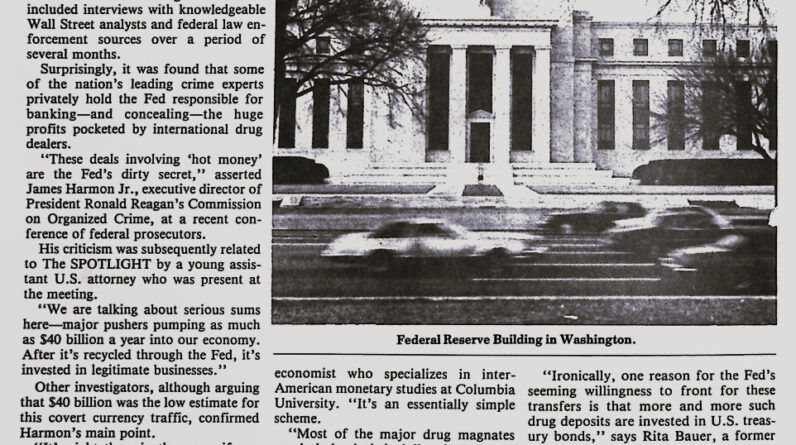Congressman Hamilton Fish visited Colonel Curtis Dall at the Spotlight in 1988 , they were friends. Both were staunch America First.
By James P. Tucker Jr.
Reprinted from The SPOTLIGHT, December 5, 1988
Hamilton Fish is greatly concerned about America’s ability to resist a Soviet attack and remains dedicated to educating his countrymen about costly mistakes of the past: specifically, letting the United States be drawn into World War I.
Fish, who turns 100 on December 7, was a powerful spokesman for peace in the 1930s when, as ranking Republican member of the House Foreign Affairs Committee, he watched the war clouds gathering in Europe.
The 6-foot-4-inch congressman lifted his booming voice—and the volume has not diminished in the decades since-to warn his countrymen against again intervening in a European war. He would often cite the part of the Monroe Doctrine Americans tend to forget: that not only does this country tolerate no interference from Europe in the Western Hemisphere but the United States is not to meddle in the affairs of Europe.
During that era, Fish had the popular position. Charles Lindbergh was drawing 100,000 people to his America First rallies at a time when professional football considered 14,000 a big crowd.
Internationalists denounced the great majority of Americans (polls showed 80 to 90 percent of the citizens opposed interfering in the European war) as “isolationists.” Yet the non-interventionists favored trade and tourism with other nations.
The shock of what was described as the Japanese “sneak” attack on Pearl Harbor on December 7, 1941 successfully deceived Americans into whipping themselves into a war frenzy. After President Franklin Roosevelt made his “day of infamy” speech on December 8, Congress declared war with a single dissenting vote in the House.
That dissenting vote did not belong to Hamilton Fish. Virtually all Americans, including the 80-90 percent who fought for peace, believed that the Japanese had forced the country into war because of the “surprise attack” that killed 2,800 American fighting men and virtually destroyed the Pacific fleet.








You must be logged in to post a comment.